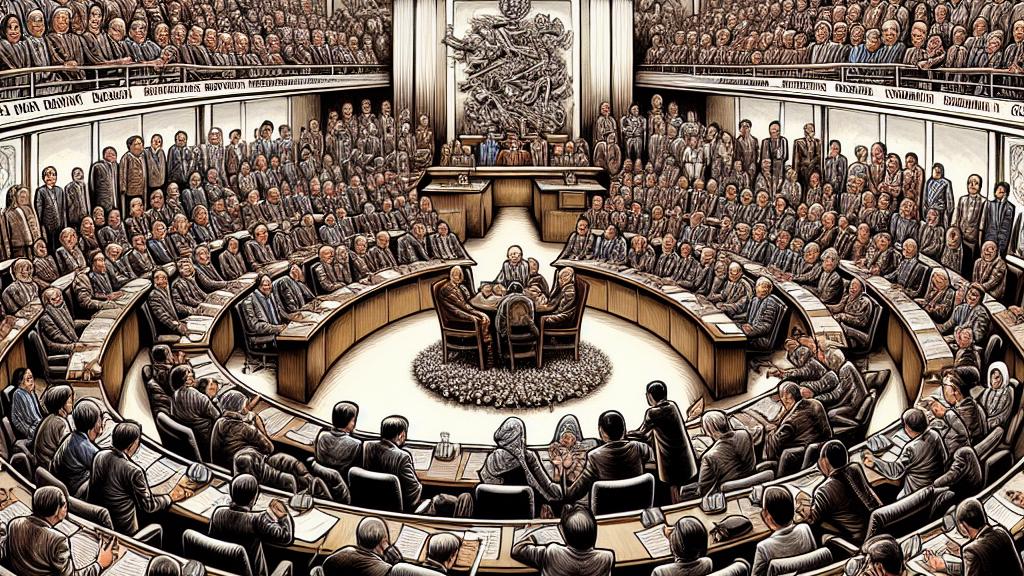Impeachment Bill Proposal for President Yoon Faces Rejection
Overview
- The South Korean National Assembly attempts a high-stakes vote on President Yoon's impeachment.
- A dramatic withdrawal by Yoon's ruling party halts the vote, leaving the opposition stunned.
- Determined to pursue justice, the opposition announces plans to reintroduce the impeachment motion on December 11.

Context Surrounding the Impeachment Vote
On December 7, 2024, tensions soared in the South Korean National Assembly as officials gathered to deliberate on the impeachment of President Yoon Suk-yeol. This proposal stemmed from Yoon's recent declaration of martial law, a controversial act seen by many as a dangerous step toward autocracy. The mood in the assembly was thick with anticipation; anticipation not only for the outcome but for the implications it would bring to the political landscape. Unfortunately, just as the vote was about to take place, a shocking twist unfolded: almost all members of Yoon's People Power Party announced their decision to withdraw. With only one member remaining, the essential quorum was lost, and what could have been a significant moment in Korean politics transformed into a harrowing interruption of democracy. This unexpected maneuver left many citizens and opposition members disheartened, grappling with the implications of such a blatant disregard for the legislative process.
Public Outrage and Political Implications
In the wake of the assembly's proceedings, public outcry erupted across Seoul. Just hours following the vote's collapse, an estimated 150,000 demonstrators took to the streets, expressing their frustration and demands for Yoon's resignation. Signs bearing strong messages highlighted citizens' anger and disillusionment, resonating with the instinct for accountability in their government. The opposition party, invigorated by the wave of protest, swiftly asserted their commitment to this cause, boldly declaring their intention to reintroduce the impeachment bill on December 11. This announcement was not just about procedural politics; it was a rallying cry for democracy and governance rooted in responsibility. The atmosphere buzzed with a collective sense of power, as citizens felt galvanized to stand up for their democratic principles; it was a vivid reminder of how grassroots movements can shape political discourse.
Consequences and Future of Yoon's Presidency
The ramifications of this political debacle for President Yoon are profound. Despite narrowly dodging impeachment for now, the reality is that his presidency hangs in the balance. Recent comments from his party leader hinted at an implicit expectation for Yoon to resign—an internal reckoning that cannot be ignored. The numbers tell a stark story; his approval ratings have plummeted to a dismal 16%, indicating a severe loss of public confidence. Moreover, as the opposition stands ready to renew their battle for accountability, Yoon finds himself at a pivotal juncture. How will he respond to this brewing storm? The stakes could not be higher, as every movement he makes is scrutinized by a vigilant public eager for change. For South Korea, this moment represents more than just Yoon's fate—it symbolizes a broader struggle for democratic integrity and collective governance in the face of adversity.

Loading...